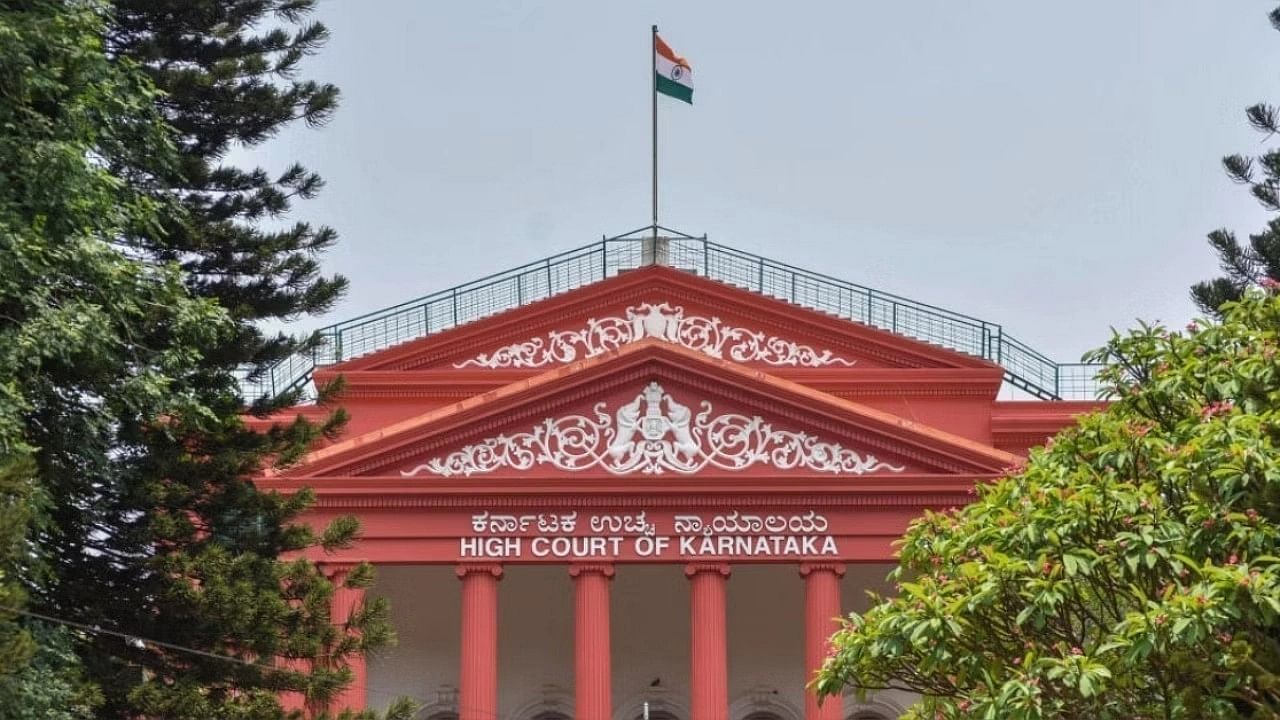
The Karnataka High Court.
Credit: DH File Photo
Bengaluru: The High Court of Karnataka on Wednesday refused to transfer the investigation into the Maharshi Valmiki Scheduled Tribes Development Corporation scam case to the Central Bureau of Investigation (CBI) under the provisions of the Banking Regulation Act.
Justice M Nagaprasanna noted that Section 35A of the Banking Regulation Act would not give teeth to any banking industry to choose the investigating agency for the investigation being conducted in a particular state.
“If this would be permitted, it would be doing violence to the statute itself. This renders the Delhi Special Police Establishment (DSPE) Act redundant, as the existence of the CBI is under the DSPE Act, and it can intervene in any state only in terms of the DSPE Act or when such investigations are handed over to the CBI by the Supreme Court or this court,” Justice Nagaprasanna said, dismissing the petition filed by the Union Bank of India (UBI).
In the scam valued at Rs 94 crore, Valmiki Corporation funds were illegally transferred to various bank accounts in Karnataka and Tamil Nadu. The state police investigated the case and filed a charge sheet.
The UBI simultaneously placed the matter before the CBI, as the alleged
fraud involved exceeded Rs 50 crore.
While the CBI registered the FIR inclusive of offences under the Prevention of Corruption Act and the IPC, the state police had investigated and pressed charges only under the IPC and by leaving out the UBI officers.
Appearing for the UBI, Attorney General K Venkataramani argued that under Section 35A of the Banking Regulation Act, the RBI has issued directions upon which such cases where alleged fraud is beyond Rs 50 crore are required to be investigated by the CBI.
On the other hand, the state and the corporation argued that Section 35A would not clothe the bank to seek a direction that the investigation should be transferred to the CBI, which has been formed under the DSPE Act.
Justice Nagaprasanna said that if any banking institution is permitted to seek transfer of investigation to the CBI, it would be giving Section 35A the powers that the statute itself does not confer.
“When the ministers or high functionaries who are involved in particular allegations and those allegations are being investigated into, such investigations must be entrusted to independent agencies, those which are not under the control of the state government and it is only then it would instil public confidence in the investigation or provide credibility to such investigation. But that cannot be on an interpretation of Section 35A of the Banking Regulation Act, as is projected by the learned Attorney General,” the court said, adding that the observations made in the order will not come in the way of any action by the petitioner in accordance with law.
‘Sorry state of affairs’
In the order, the high court observed that the issue pertaining to siphoning off funds from the corporation projects a very sorry state of affairs of the state.
“Funds belonging to the scheduled tribes ought to have been treated with great care. It shocks the conscience of the court that funds of scheduled tribe community also is subject matter of scam of misappropriation of funds belonging to a schedule tribe development corporation,” Justice Nagaprasanna said.